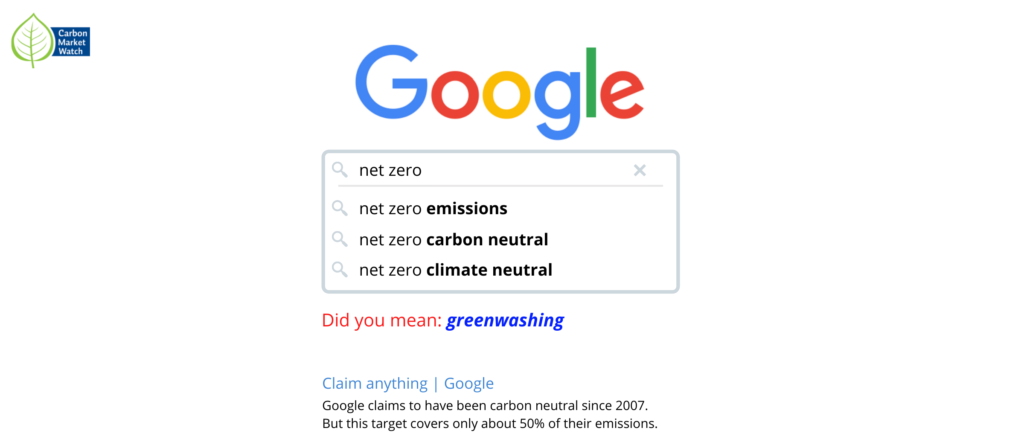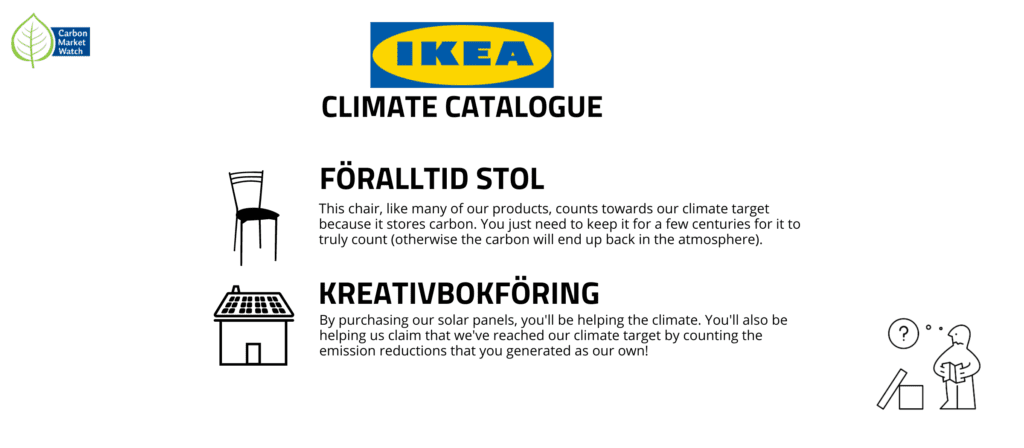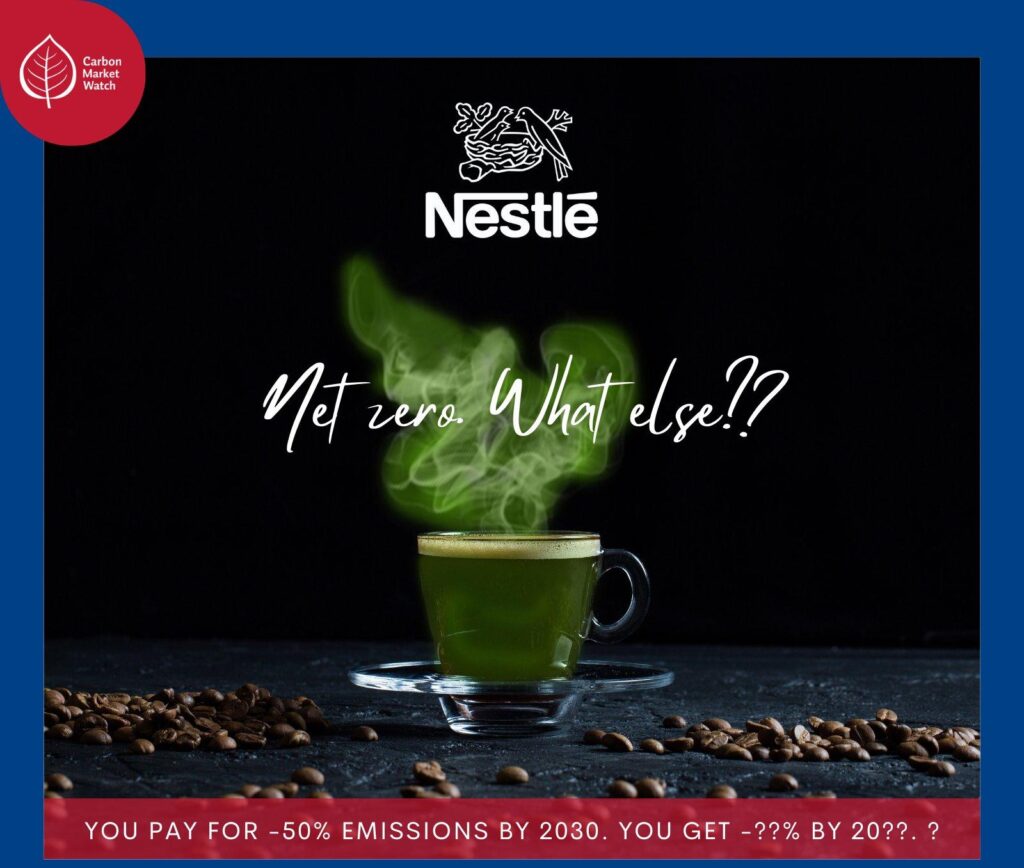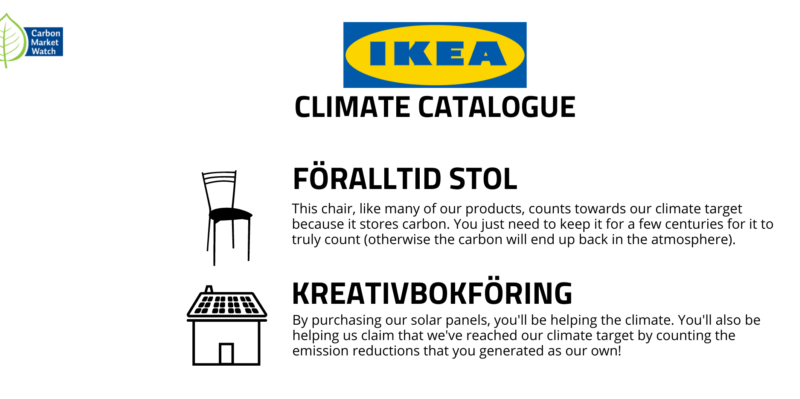Masking inaction: Why corporations greenwash
By Khaled Diab
The corporate ecosystem is rooted in profit maximisation and the unrelenting quest for perpetual growth, which provides a powerful incentive for greenwashing. This is not good news for our natural ecosystems.
Climate action is in the air. Like governments around the world, major corporations are falling over themselves to issue climate pledges and, in keeping with being responsible global citizens, setting off on a course towards apparently ambitious climate action… or at least that is what they claim to the outside world.
At least a fifth of the world's largest 1,000 corporations had already made “net zero” emissions pledges by March of last year, according to Oxford University's Energy and Climate Intelligence Unit.
So how are these corporations faring?
The first-ever Corporate Climate Responsibility Monitor, a joint initiative between NewClimate Institute and Carbon Market Watch, where I work, aimed to answer that question. The report assessed the climate pledges and claims of 25 of the world's largest corporations, including such household names as Apple, Amazon, BMW, Carrefour, GlaxoSmithKline, Google, IKEA, Nestlé, Sony, Vodafone and Unilever.
The results shocked even the researchers, and not pleasantly. “We set out to uncover as many replicable good practices as possible, but we were frankly surprised and disappointed at the overall integrity of the companies' claims,” said NewClimate's Thomas Day, the lead author of the report.
Despite ambitious-sounding pledges to become “carbon neutral” and even “carbon positive”, the researchers discovered that the future emissions reductions the companies have actually committed to was, on average, just 40%. Moreover, many of these cuts are to be delivered decades from now, in 2040 or 2050, leaving the burden squarely on the shoulders of future generations.
Of the 25 corporations evaluated, a mere three commit to reducing their full-value chain emissions by over 90%: Maersk, Vodafone and Deutsche Telekom. At the other end of the scale, at least five of the companies would effectively only reduce their emissions by less than 15%.

One favourite technique corporations use to wash their image with a greener than green sheen is to employ accounting tricks so creative they deserve their very own literature prize. For instance, consider the case of Apple. The iconic tech firm proudly proclaims: “We're carbon neutral. And by 2030, every product you love will be too.”
This is bound to make users of Apple's many products feel comfortable about their consumption habits. But the corporation here is singing a very misleading iTune because its assertion covers a tiny bite of the corporation's proverbial emissions apple. This carbon-neutrality claim currently includes only direct operations, which account for a microscopic 1.5% of Apple's carbon footprint.
The corporations featured in the report are able to mask their inaction and lack of ambition by utilising the elusive concept of “net zero”, which may sound like zero but is not zero because it includes not only emissions reductions but also carbon offsets and removals.
One entertaining example of this involves IKEA. Although the furniture behemoth is by far not the worst-intentioned performer in the pack, it nonetheless currently applies some sneaky accounting tricks to arrive at its targets. For example, it counts the solar panels it sells to customers towards its own emissions reductions.

IKEA also counts the carbon stored in some if its furniture. However, there is a slight snag here. For that stored carbon to make a difference to the climate, it will have to remain in IKEA's chairs and beds for centuries, implying that it would need to shift its business model away from flatpack fast furniture to designing the ancient antiques of the distant future.
The ludicrous lengths to which top corporations go to give their images a green facelift is rich material to mine for satire, but the consequences of this comedy of erroneous claims is anything but funny. “Greenwashing is not a victimless crime as consumers and decision-makers are fooled into thinking that companies are doing all they can to address their climate impact,” explains Carbon Market Watch's Gilles Dufrasne.

Given the elasticity and ambiguity of terms like “net zero” and “carbon neutral” and their potential to be exploited for greenwashing, we at Carbon Market Watch are urging governments to step in and ban corporations from making such claims and to compel them to report their actual emissions reductions. Governments must also set strict criteria to regulate whether and how specific climate-related claims can be made.
Of course, this may prove a difficult ask. Many governments, after all, are also playing fast and loose with their net zero pledges, as I outlined in an earlier column. Nevertheless, governments must act because the temptation to greenwash will more often than not prove too strong for corporations to resist.
Why is this?
The immediate reason is that, without regulation and oversight, a typical corporation will seek to maximise its green image at the minimum financial cost and operational inconvenience. This means that the changes it is likely to set in motion will be cosmetic, at a time when only radical change will avert disaster.
Another factor is more fundamental and systemic. The entire corporate ecosystem is rooted in profit maximisation and the unrelenting quest for perpetual growth and for maximising value for shareholders. This is not good news for our natural ecosystems.
A company that wishes to become truly green and sustainable must not only invest heavily in renewable energy, it also needs to rethink its entire business model and shift it towards more durable, long-lasting products and make their production processes circular to minimise and even eliminate waste and slash unnecessary emissions.
It is no good that, for example, Apple (or Samsung or Huawei, for that matter) makes its energy supply greener, if it continues to release new iPhones every year and continues to stop providing software updates for older iPhone models or inters them in the graveyard of its “vintage and obsolete” list. At present in Europe, the average smartphone is kept for less than three years before it is thrown away. Extending their lives by just one year would save 2 million tonnes of emissions in Europe alone, according to one study.
This kind of planned obsolescence is not just a problem with smartphones but has afflicted the entire economy since lightbulb manufacturers had a lightbulb moment a century ago and decided to limit the lifespan of their products to drive up demand.
However, reinventing a corporation's business model to make its products more durable and sustainable will reduce demand, affecting its revenue streams and growth prospects. And the stock market hates nothing more than a corporation that stops growing.
Take the recent case of Facebook. When it reported that its active users had dropped ever so slightly (for the first time), from 1.93 billion to 1.929 billion, investors ran for the hills, causing mother company Meta's market value to drop by $230 billion, the largest single-day loss ever. Meanwhile, revelations that corporations are cooking their climate books has had zero impact on stock market interest in them, despite the media storm surrounding the revelations.
What this reveals is that the system is loaded against the climate and the environment. Overcoming this inertia requires a shift not only in the individual behaviour of corporations but also in the market forces governing them. Profit optimisation needs to replace maximisation, and sustainability needs to matter far more than size.
______
This article first appeared in Al Jazeera English on 5 March 2022.



